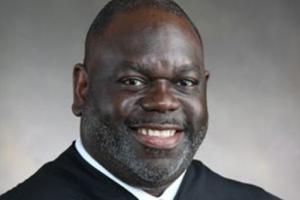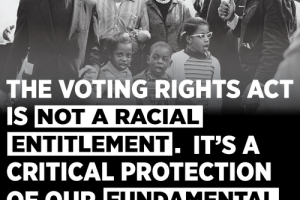Jim Crow Voting Laws — Then and Now
Civil Rights Movement Archive
 Here's an astonishing speech by U.S. District Judge Carlton Reeves, one of just two African-Americans to have ever served as federal judges in Mississippi. He read it to three young white men before sentencing them for the death of a 48-year-old black man named James Craig Anderson in a parking lot in Jackson, Miss., in 2011. They were part of a group that beat Anderson and then killed him by running over his body with a truck, yelling "white power" as they drove off.
Here's an astonishing speech by U.S. District Judge Carlton Reeves, one of just two African-Americans to have ever served as federal judges in Mississippi. He read it to three young white men before sentencing them for the death of a 48-year-old black man named James Craig Anderson in a parking lot in Jackson, Miss., in 2011. They were part of a group that beat Anderson and then killed him by running over his body with a truck, yelling "white power" as they drove off.
 Ginsburg attacks the ahistorical character of the majority decision. Quoting Shakespeare, she notes that the majority "ignores that `what's past is prologue'". What a profound observation, `the past is prologue'. It neatly, and with a literary flourish, sums up the deep defect with the Court's decision, its deliberate ignoring of both the contemporary ramifications of historical racism in this country as well as its current vitality.
Ginsburg attacks the ahistorical character of the majority decision. Quoting Shakespeare, she notes that the majority "ignores that `what's past is prologue'". What a profound observation, `the past is prologue'. It neatly, and with a literary flourish, sums up the deep defect with the Court's decision, its deliberate ignoring of both the contemporary ramifications of historical racism in this country as well as its current vitality.
Spread the word